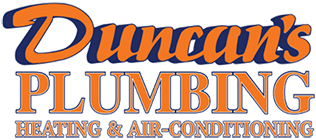Welcome to Duncan’s Plumbing Heating and Air Conditioning, your trusted partner in the proper handling and treatment of wastewater through state of the art oil water separator solutions. Operating throughout Canberra, we bring extensive expertise to the installation, maintenance, and compliance assurance of oil water separators.
Differentiating Between Grease Interceptor and Oil Water Separator:
While a grease interceptor focuses on removing fatty solids in commercial kitchens, oil water separators handle a broader range of contaminants in various industries. Grease interceptors are simpler in design, slowing down water flow to allow solids to settle for disposal.
Guidelines and Regulations for Oil and Water:
Australian regulations set limits on the permissible amount of oil in wastewater streams to protect the environment. Local water authorities issue trade waste permits with specified limits, and compliance ensures minimal impact on ecosystems.
Choosing the Right Oil Water Separator:
Two main types, hydrocyclone and coalescing, operate on different principles. Hydrocyclones use centrifugal force, achieving high efficiency, while coalescing plate separators slow down wastewater flow, allowing oil to rise and collect in a chamber.
Sizing an Oil Water Separator:
Proper sizing is crucial, with coalescing separators requiring a chamber approximately ten times the wastewater flow rate for optimal retention time.
Building an Oil Water Separator:
A typical installation includes an underground collection pit, a float system, a skid-mounted unit, a waste oil collection drum, and a discharge to the Icon Water sewer network.
Cost Considerations:
Oil water separator solutions vary in price, influenced by capacity, chosen technology, oil content, and discharge specifications. Capital investment in these separators is a preventive measure, avoiding fines for non-compliance and potential business shutdowns.
Oil Water Separator Problems and Solutions:
Issues may arise if there’s a mismatch between design and operating conditions, high wastewater flow rates, or the use of incorrect detergents. Routine maintenance is vital to prevent problems such as overflow and high oil content discharge.
Servicing and Maintenance:
Local water authorities often mandate regular servicing and maintenance. Tasks include inspecting silt traps, cleaning oil collection containers, removing and cleaning media packs, and checking the water flow and oil build-up.
Frequency of Cleaning:
Weekly checks and cleaning are recommended for oil collection containers, with the entire separator requiring thorough cleaning every three to six months, depending on usage.
Benefits of Oil Water Separators:
These separators enable compliance with regulations, protecting the environment from potential harm. They prevent fines for excessive oil content in trade waste and contribute to the responsible discharge of wastewater.
